Contents
- I. Introduction
- II. Understanding Maine Coon Cats
- III. Common Reasons for a Maine Coon Cat’s Crying
- IV. How to Identify if Your Maine Coon Cat is Crying
- V. Addressing the Health Concerns of a Crying Maine Coon Cat
- VI. Tips for Soothing a Crying Maine Coon Cat
- VII. Frequently Asked Questions about Maine Coon Cats Crying
- 1. Why do Maine Coon cats cry so much?
- 2. Is excessive crying a sign of illness in Maine Coon cats?
- 3. How can I comfort my crying Maine Coon cat?
- 4. Are Maine Coon cats more prone to separation anxiety?
- 5. Should I ignore my crying Maine Coon cat?
- 6. Can a change in diet lead to increased crying in Maine Coon cats?
- 7. Are Maine Coon cats more prone to loud crying at night?
- 8. Can spaying or neutering reduce a Maine Coon cat’s crying?
- 9. Should I seek professional help if my Maine Coon cat’s crying persists?
- 10. What are some preventive measures to minimize crying in Maine Coon cats?
I. Introduction
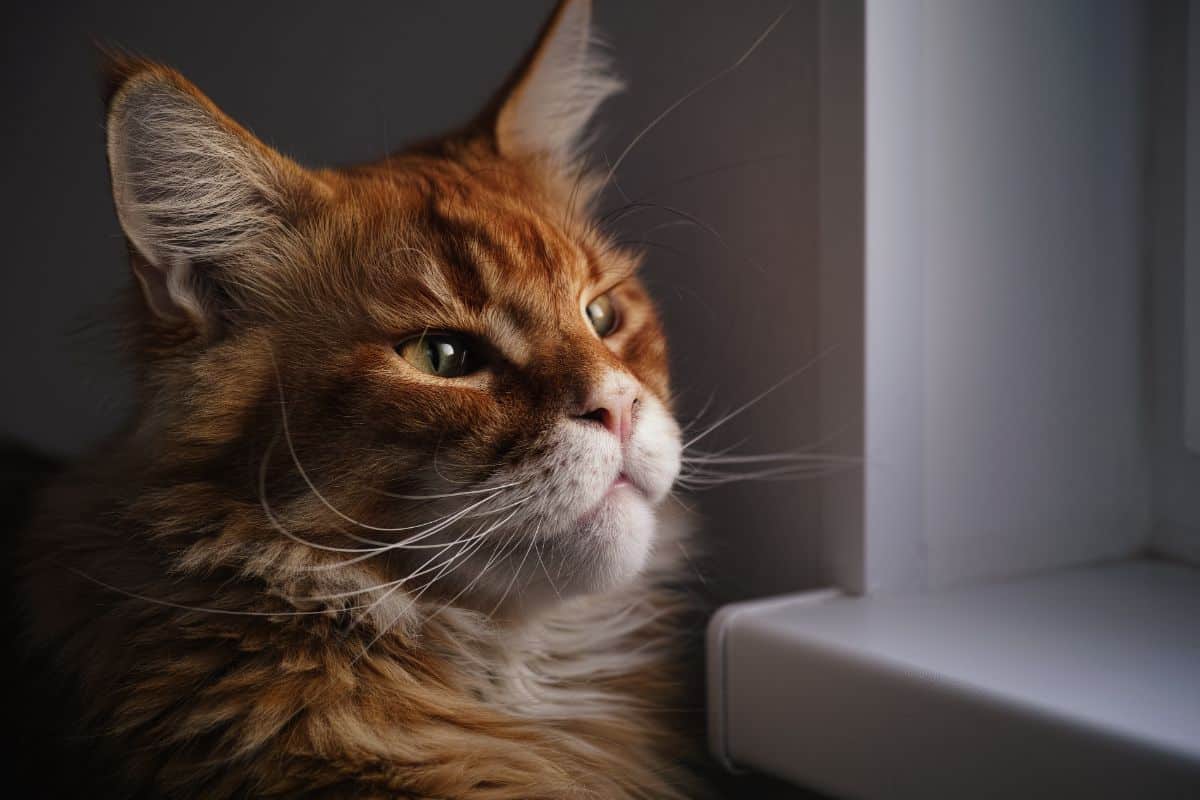
Welcoming a Maine Coon into your home can be an exciting and rewarding experience. These majestic cats are known for their large size, striking appearance, and friendly personalities. However, if you’ve noticed your Maine Coon crying or making unusual sounds, it’s important to understand the reasons behind their behavior.
In this article, we will explore the top five reasons why your Maine Coon may be crying. By gaining insight into their needs and emotions, you can ensure a happy and healthy life for your beloved feline companion.
1. Physical Discomfort
Maine Coons, like any other cat, can experience physical discomfort that may lead to crying. It could be due to an underlying health issue, such as urinary tract infections, dental problems, or arthritis. If your Maine Coon is crying excessively or showing signs of pain, it’s crucial to consult a veterinarian to rule out any medical conditions.
2. Attention and Affection
Maine Coons are known to be social and affectionate cats. They thrive on human interaction and can become vocal when they want attention. Your Maine Coon may be crying to communicate their desire for playtime, cuddles, or simply to be in your presence. Spending quality time with your furry friend and providing ample affection can help address this need.
3. Environmental Stress
Cats are sensitive to changes in their environment, and Maine Coons are no exception. Moving to a new house, introducing a new pet, or even rearranging furniture can cause stress and anxiety in your Maine Coon. They may cry as a way to express their discomfort. Creating a calm and consistent environment, providing hiding spots, and using pheromone diffusers can help alleviate their stress.
4. Boredom and Stimulation
Maine Coons are intelligent and active cats that require mental and physical stimulation. If they lack sufficient activities or toys to keep them occupied, they may become bored and resort to crying. Providing interactive toys, scratching posts, and engaging play sessions can help prevent boredom and satisfy their natural instincts.
5. Hunger and Thirst
Like all living beings, Maine Coons need regular meals and access to fresh water. If their food and water bowls are empty or inadequate, they may cry to communicate their hunger or thirst. Ensure you provide a balanced and nutritious diet, monitor their water intake, and establish a consistent feeding routine to meet their dietary needs.
Understanding the reasons behind your Maine Coon’s crying can strengthen the bond between you and your feline companion. By addressing their physical and emotional needs, you can create a nurturing and harmonious environment that promotes their overall well-being. Remember, attentive care and love are vital in ensuring a happy and content Maine Coon.
II. Understanding Maine Coon Cats

Maine Coon cats are known for their large size, tufted ears, and bushy tails. They are one of the oldest natural breeds in North America and have a fascinating history. In this section, we will delve deeper into understanding these magnificent felines.
The Origin of Maine Coon Cats
The exact origin of Maine Coon cats is shrouded in mystery and several myths surround their beginnings. One popular theory suggests that they are descendants of long-haired cats brought by Vikings during their exploration of North America. Another theory purports that they are a crossbreed between domestic cats and raccoons due to their striking resemblance to the latter.
While the truth may never be known, what we do know for certain is that Maine Coon cats originated in the state of Maine, hence their name. They were highly valued for their hunting skills and ability to survive harsh winters.
Physical Characteristics
Maine Coon cats are known for their impressive size. Males can weigh between 13 and 18 pounds, while females typically weigh between 8 and 12 pounds. Their bodies are long and muscular, allowing them to be excellent climbers and jumpers.
One distinguishing feature of Maine Coon cats is their tufted ears. These lynx-like ears are adorned with tufts of fur, giving them a regal appearance. They also have large and expressive eyes, which can come in various colors such as green, gold, or copper.
Temperament and Personality
Maine Coon cats have a reputation for being friendly and sociable. They are known for their gentle and loving nature, making them great companions for families and individuals alike. They enjoy the company of humans and other pets, often seeking out attention and affection.
These cats are also highly intelligent and curious. They love to explore their surroundings and engage in interactive play. Maine Coon cats are known to be excellent problem solvers and can even learn tricks and commands.
Grooming and Care
Due to their long fur, Maine Coon cats require regular grooming to keep their coat in top condition. Brushing them at least once a week helps prevent matting and keeps their fur soft and shiny. It is also important to trim their nails regularly and clean their ears to prevent infections.
Additionally, providing them with a balanced diet and regular veterinary check-ups is essential for their overall health and well-being.
Understanding Maine Coon cats involves appreciating their unique history, physical characteristics, temperament, and care requirements. These magnificent felines are truly a treasure to have as part of the family.
III. Common Reasons for a Maine Coon Cat’s Crying
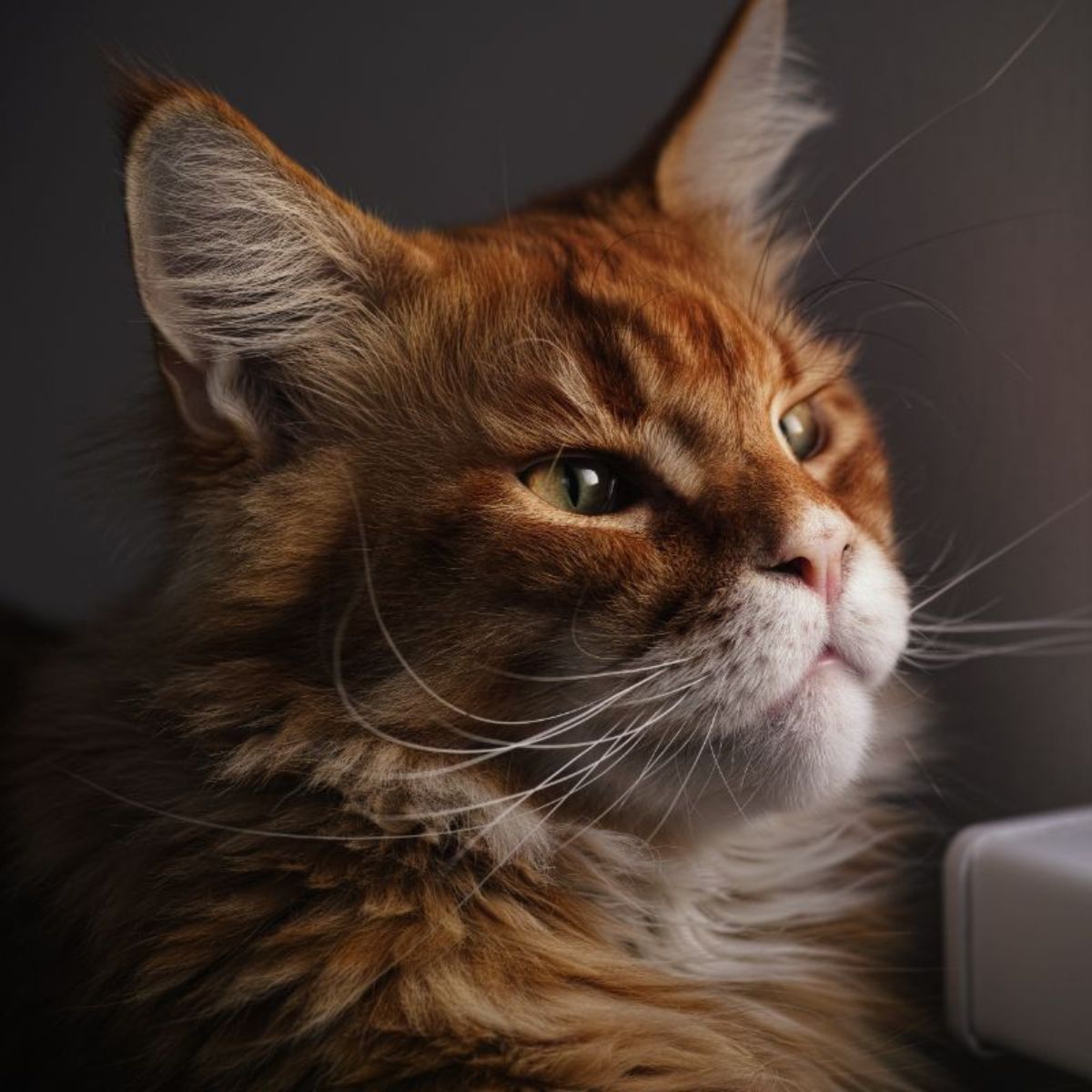
As a Maine Coon cat owner, it can be concerning when your furry friend starts crying excessively. Cats communicate through various vocalizations, and crying is one way they express their needs or emotions. Understanding why your Maine Coon is crying is essential to ensure their well-being and address any underlying issues.
1. Physical Discomfort or Pain
Maine Coon cats, like any other breed, can experience physical discomfort or pain that may cause them to cry. Common reasons include urinary tract infections, dental problems, or arthritis. If your cat’s crying is accompanied by changes in behavior or appetite, it’s crucial to consult a veterinarian for a thorough examination and appropriate treatment.
2. Loneliness or Boredom
Maine Coon cats are sociable creatures that thrive on companionship and stimulation. If they are left alone for extended periods or lack mental and physical enrichment, they may cry out of loneliness or boredom. Providing them with interactive toys, scratch posts, and spending quality time together can help alleviate their distress.
3. Environmental Stress
Cats are sensitive to changes in their environment, and Maine Coons are no exception. Moving to a new home, introducing a new pet, or even rearranging furniture can cause stress and trigger excessive crying. Creating a calm and secure environment, providing hiding places, and using pheromone diffusers can help ease their anxiety.
4. Hunger or Thirst
Maine Coon cats have healthy appetites, and if they are not adequately fed or provided with fresh water, they may cry to express their hunger or thirst. Ensure you have a consistent feeding schedule and fresh water available at all times. If your cat’s crying persists despite being fed, consult a veterinarian to rule out any underlying health issues.
5. Attention-Seeking Behavior
Maine Coon cats are known for their playful and affectionate nature. If they are seeking attention or want to engage with their owners, they may resort to crying. Interacting with your cat, engaging in playtime, and providing them with affection can help fulfill their need for attention and reduce excessive crying.
Remember, every cat is unique, and the reasons for their crying may vary. It’s important to observe your Maine Coon’s behavior, listen to their vocalizations, and seek professional advice if their crying becomes persistent or is accompanied by other concerning symptoms. By addressing their needs and providing a loving environment, you can ensure your Maine Coon’s happiness and well-being.
IV. How to Identify if Your Maine Coon Cat is Crying
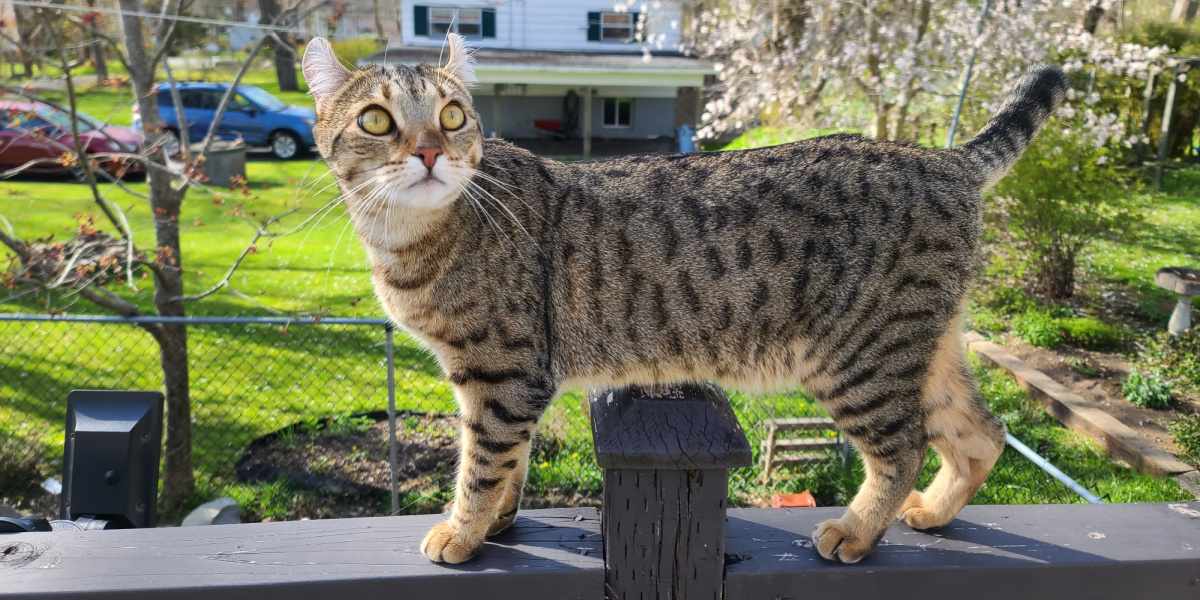
If you’re a Maine Coon cat owner, you may have noticed your furry friend exhibiting behaviors that resemble crying. While cats don’t shed tears like humans do, they do have ways of expressing their emotions. Understanding how to identify if your Maine Coon is crying can help you address their needs and ensure their well-being.
1. Vocalization
One of the most common signs that your Maine Coon cat may be crying is through vocalization. Cats have a wide range of vocal sounds, and when they’re feeling upset or distressed, they may produce loud, mournful meows or yowls. Pay attention to the pitch and intensity of their vocalizations to determine if they are crying.
2. Body Language
Just like humans, cats communicate through body language. If your Maine Coon cat is crying, you may notice changes in their posture and behavior. They may hunch their body, tuck their tail between their legs, or exhibit signs of restlessness. Additionally, they may avoid eye contact and display a generally sad or anxious demeanor.
3. Excessive Grooming
Cats often groom themselves to stay clean and relaxed. However, if your Maine Coon cat is crying, they may engage in excessive grooming as a coping mechanism. They may lick their fur excessively, causing bald patches or skin irritation. Keep an eye out for any changes in their grooming habits.
4. Loss of Appetite
Crying or distress can also affect a cat’s appetite. If your Maine Coon cat is crying, they may exhibit a loss of interest in their food or treats. They may also refuse to eat altogether. Monitor their eating habits closely and consult with a veterinarian if the loss of appetite persists.
5. Changes in Litter Box Behavior
Crying or emotional distress can also affect a Maine Coon cat’s litter box behavior. They may urinate outside of the litter box or show signs of difficulty or pain during urination. These changes may indicate underlying health issues that need immediate attention.
As a responsible Maine Coon cat owner, it’s important to pay attention to your cat’s behavior and provide them with the care and support they need. If you notice any of the aforementioned signs of crying, it’s recommended to consult with a veterinarian to rule out any underlying health conditions. Remember, a happy and healthy Maine Coon cat is a content cat!
V. Addressing the Health Concerns of a Crying Maine Coon Cat
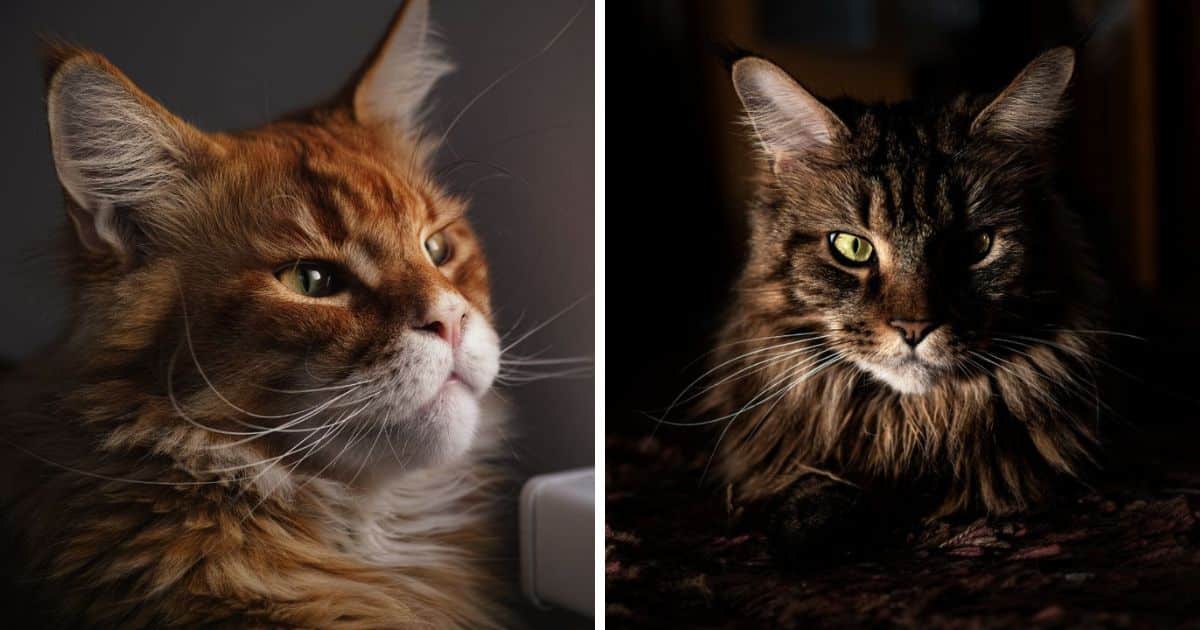
If you have a Maine Coon cat that is crying excessively, it can be a cause for concern. While occasional crying is normal for cats, if it becomes persistent, it may indicate an underlying health issue that needs attention. Here are a few common health concerns that may be causing your Maine Coon to cry and how to address them:
1. Dental Problems
Maine Coon cats are prone to dental issues such as gum disease and tooth decay. These problems can cause pain and discomfort, leading to excessive crying. To address dental concerns, ensure regular dental check-ups with your veterinarian, and maintain a good oral hygiene routine for your cat. Brushing their teeth regularly and providing dental treats or toys can help prevent dental problems.
2. Urinary Tract Infections
Crying may be a sign that your Maine Coon is suffering from a urinary tract infection (UTI). UTIs can cause discomfort and pain while urinating, leading to excessive crying. If you suspect a UTI, consult your veterinarian for a proper diagnosis and treatment. They may prescribe antibiotics or suggest dietary changes to prevent future infections.
3. Allergies
Maine Coon cats can develop allergies to certain foods, environmental factors, or even grooming products. Allergies can manifest as itching, redness, and inflammation, causing your cat to cry. Identifying and eliminating the allergen from your cat’s environment or diet can help alleviate their symptoms. Your veterinarian can perform allergy tests to determine the specific allergen and recommend appropriate treatment options.
4. Eye Infections
Eye infections, such as conjunctivitis or corneal ulcers, can cause your Maine Coon’s eyes to become red, swollen, and painful. Excessive crying may indicate discomfort caused by these infections. If you notice any signs of eye infection, seek veterinary attention immediately. Your veterinarian may prescribe eye drops or ointments to treat the infection and relieve your cat’s discomfort.
5. Arthritis
Maine Coon cats are prone to developing arthritis, especially as they age. Arthritis can cause joint pain, stiffness, and difficulty in movement, leading to crying. If you suspect arthritis, consult your veterinarian for a proper diagnosis and management plan. They may suggest medication, joint supplements, or physical therapy to alleviate your cat’s pain and improve their mobility.
Remember, if your Maine Coon cat is crying excessively, it’s essential to address the underlying cause promptly. Regular veterinary check-ups, proper nutrition, and a healthy lifestyle can help prevent many health concerns. Paying attention to your cat’s behavior and seeking veterinary advice when needed will ensure their well-being and happiness.
VI. Tips for Soothing a Crying Maine Coon Cat
Dealing with a crying Maine Coon cat can be challenging and frustrating, especially if you’re unsure of the underlying cause. Here are some helpful tips to soothe your furry friend and provide them with comfort:
1. Create a Calm Environment
Maine Coon cats are sensitive to their surroundings, so it’s important to create a peaceful environment. Find a quiet area in your home where your cat can relax without any disturbances. Provide a cozy bed, toys, and a comfortable temperature to help them feel secure.
2. Check for Basic Needs
Make sure your Maine Coon has access to fresh water and a clean litter box. Hunger, thirst, or a dirty litter box can cause distress and result in excessive crying. Regularly check these basic needs to ensure your cat is comfortable and content.
3. Provide Mental Stimulation
Maine Coon cats are intelligent and curious creatures, so it’s essential to provide mental stimulation. Engage them with interactive toys, puzzle feeders, or scratching posts to keep their minds occupied. This can help prevent boredom and alleviate any stress that may be causing their cries.
4. Offer Comfort and Affection
When your Maine Coon is crying, offering comfort and affection can go a long way. Gently stroke their fur, speak in soothing tones, and spend quality time bonding with them. Physical touch and emotional connection can help reassure your cat and alleviate any anxiety they may be experiencing.
5. Consult with a Veterinarian
If your Maine Coon’s crying persists or you notice any other concerning symptoms, it’s crucial to consult with a veterinarian. They can perform a thorough examination, identify any underlying medical conditions, and provide appropriate treatment. A professional opinion will help address the issue effectively and ensure your cat’s well-being.
Remember, every Maine Coon is unique, and what works for one cat may not work for another. Be patient, observant, and willing to try different strategies to find what soothes your crying Maine Coon cat. With love, care, and attention, you can help them find relief and lead a happy, contented life.
VII. Frequently Asked Questions about Maine Coon Cats Crying
1. Why do Maine Coon cats cry so much?
Maine Coon cats are known to be quite vocal compared to other breeds. They have a wide range of vocalizations, including crying or meowing. This behavior can be attributed to various reasons such as seeking attention, expressing hunger, or feeling lonely. It’s their way of communicating with their owners.
2. Is excessive crying a sign of illness in Maine Coon cats?
While Maine Coon cats are generally talkative, excessive crying can sometimes indicate an underlying health issue. If your cat’s crying becomes persistent or changes in frequency, it is advisable to consult a veterinarian. They will be able to determine if there is an underlying medical condition causing the excessive crying.
3. How can I comfort my crying Maine Coon cat?
There are several ways you can comfort your crying Maine Coon cat. Firstly, make sure their basic needs are met, such as providing them with food, water, and a clean litter box. Spending quality time with your cat, engaging in play sessions, or simply giving them attention can also help alleviate their crying. Additionally, creating a calm and soothing environment can make them feel more secure and reduce their need to cry.
4. Are Maine Coon cats more prone to separation anxiety?
Maine Coon cats can develop separation anxiety if they become too attached to their owners. They are known to form strong bonds with their human companions and can become distressed when left alone for extended periods. To prevent separation anxiety, gradually introduce your cat to being alone and provide them with stimulating toys or activities to keep them occupied.
5. Should I ignore my crying Maine Coon cat?
Ignoring a crying Maine Coon cat is not recommended as it may exacerbate their anxiety or distress. These cats are highly social and rely on interaction with their owners. Instead of ignoring them, try to understand the reason behind their crying and address it appropriately. Providing comfort, reassurance, and attention can help soothe their distress and minimize excessive crying.
6. Can a change in diet lead to increased crying in Maine Coon cats?
A sudden change in diet can disrupt a Maine Coon cat’s digestive system, leading to discomfort and increased crying. It is important to introduce any dietary changes gradually, allowing their stomach to adjust. If you notice excessive crying after changing their diet, consider consulting a veterinarian to ensure there are no underlying digestive issues.
7. Are Maine Coon cats more prone to loud crying at night?
Maine Coon cats are known for their nocturnal tendencies, and it is not uncommon for them to be more active and vocal during the night. However, if their crying becomes excessively loud or disruptive, it could be a sign of discomfort or distress. Providing a comfortable sleeping area and engaging in interactive playtime during the day can help reduce nighttime crying.
8. Can spaying or neutering reduce a Maine Coon cat’s crying?
Spaying or neutering a Maine Coon cat can help reduce their overall vocalization, including excessive crying. Hormonal changes associated with intact cats can contribute to heightened vocalizations. However, it is important to note that individual cat personalities and environmental factors also play a role in their vocalization habits.
9. Should I seek professional help if my Maine Coon cat’s crying persists?
If your Maine Coon cat’s crying persists despite addressing their basic needs and providing comfort, it may be beneficial to seek advice from a professional, such as a veterinarian or a cat behaviorist. They can assess your cat’s behavior and provide guidance on how to manage excessive crying effectively.
10. What are some preventive measures to minimize crying in Maine Coon cats?
To minimize crying in Maine Coon cats, ensure they have a stimulating environment with plenty of interactive toys and scratching posts. Regular play sessions and quality time with their owners can help fulfill their social needs. Additionally, maintaining a consistent routine and providing a balanced diet can contribute to their overall well-being and reduce excessive crying.
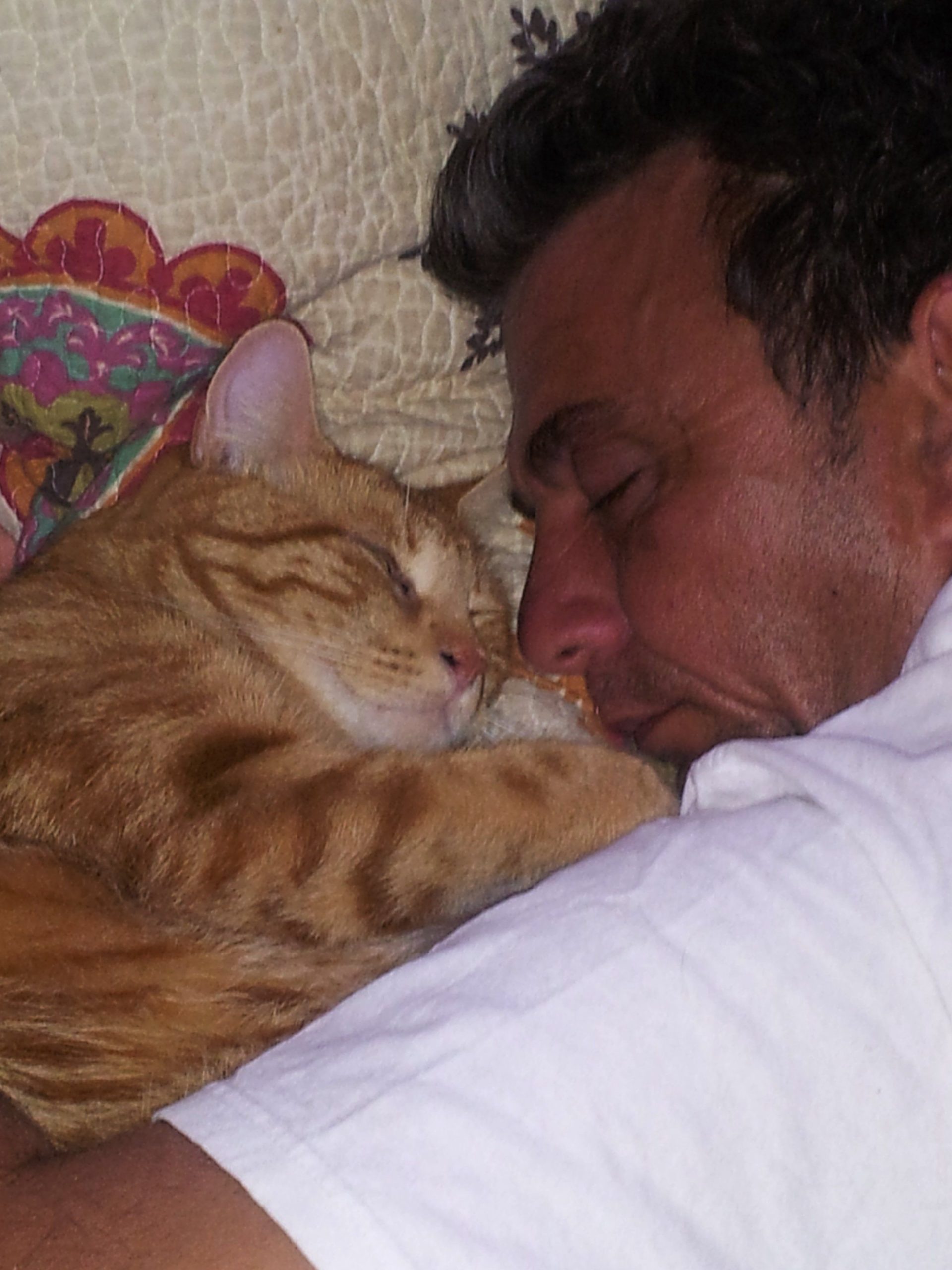
Jackson is an accomplished content writer with a flair for captivating storytelling. With a Bachelor’s degree in English Literature from the prestigious University of California, Berkeley, Hunter’s educational background has honed his writing skills to perfection. His love for felines is evident in his extensive knowledge of cat behavior and care, making him an expert in the field. Hunter’s passion for cats has led him to contribute insightful articles to various online platforms, providing valuable information and tips to cat owners worldwide. With his exceptional writing abilities and deep understanding of cats, Hunter continues to create engaging content that resonates with readers and leaves a lasting impact.
